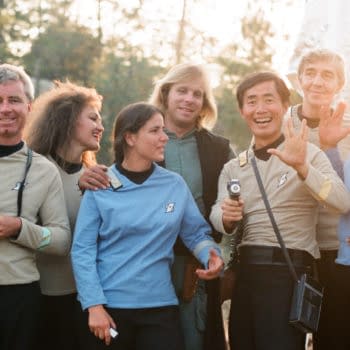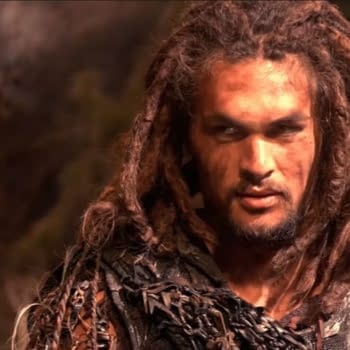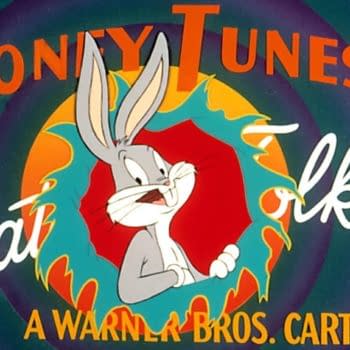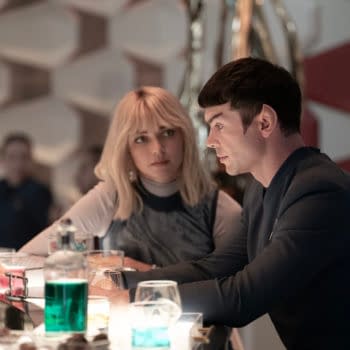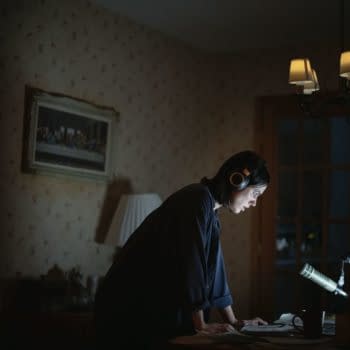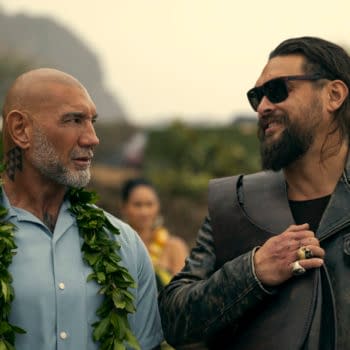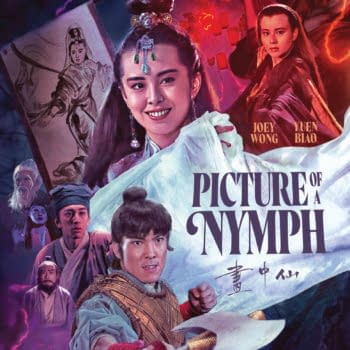Posted in: Movies, Sony | Tagged: bruce lee, once upon a time in hollywood, quentin tarantino, shannon lee
Shannon Lee to Tarantino: "Shut Up or Apologize" for Bruce Lee Depiction
When director Quentin Tarantino responded to accusations that misrepresented Bruce Lee in Once Upon a Time in Hollywood, he snapped back that the martial arts legend was accurate and was arrogant and cocky as he was depicted, but Shannon Lee, the late actor's daughter is having none of it.
Lee spoke to Variety about Tarantino's response offering a resolution.
"He could shut up about it. That would be really nice. Or he could apologize or he could say, 'I don't really know what Bruce Lee was like. I just wrote it for my movie. But that shouldn't be taken as how he really was.'"
Tarantino cast Mike Moh as Lee in the film. He spoke at a press junket in Moscow reaffirming his stance about the late actor's attitude citing writings from his widow, Linda Lee Caldwell.
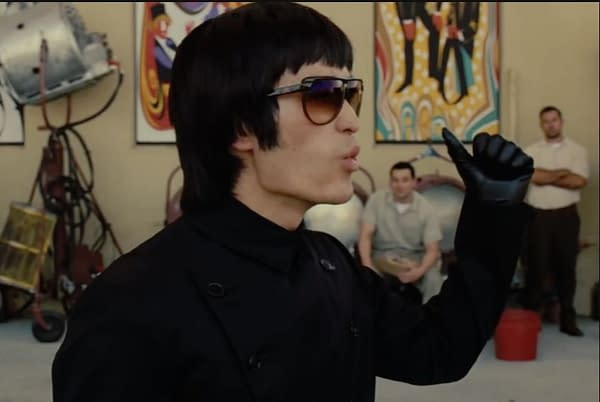
"Bruce Lee was kind of an arrogant guy. The way he was talking, I didn't just make a lot of that up. I heard him say things like that, to that effect. If people are saying, 'Well he never said he could beat up Muhammad Ali.' Well, yeah, he did. Not only did he say that, but his wife, Linda Lee, said that in her first biography I ever read. She absolutely said that."
The passage in question Tarantino was quoting was actually from a critic and not of Caldwell's in her biography, "Bruce Lee: The Man Only I Knew."
"Those who watched [Bruce] Lee would bet on Lee to render Cassius Clay senseless," and not from the author herself (Clay was later known as Muhammad Ali)."
Lee accuses Tarantino's stance as hypocritical.
"One of the things that's troubling in his response is that, on the one hand, he wants to put this forward as fact and, on the other hand, he wants to stay in fiction."
Lee admits her father's confidence could be mistaken for arrogance and he is by no means "perfect," but the kind of criticism Tarantino makes is one she's heard before primarily from other white men in martial arts and Hollywood circles.
"[Tarantino] can portray Bruce Lee however he wanted to, and he did. But it's a little disingenuous for him to say, 'Well, this is how he was, but this is a fictional movie, so don't worry too much about it.'"
Those close to Bruce Lee, like his protégé and training partner, Dan Inosanto agree with Shannon and rejects the assertion Bruce would make such statements about Ali.
NBA legend Kareem-Abdul Jabaar, another student of Lee's, wrote in the Hollywood Reporter about how even fictional depictions of real people can shape audience perception.
"Even though we know [Once Upon a Time in Hollywood] is fiction, those scenes will live on in our shared cultural conscience as impressions of those real people, thereby corrupting our memory of them built on their real-life actions. That's why filmmakers have a responsibility when playing with people's perceptions of admired historic people to maintain a basic truth about the content of their character."
Jabaar stated while he's a fan of Tarantino's, the film reminds him of what his friend had to go through.
"Bruce Lee was my friend and teacher. That doesn't give [Tarantino] a free pass for how he's portrayed in movies. But it does give me some insight into the man.
During our years of friendship, he spoke passionately about how frustrated he was with the stereotypical representation of Asians in film and TV. The only roles were for inscrutable villains or bowing servants. In Have Gun – Will Travel, Paladin's faithful Chinese servant goes by the insulting name of "Hey Boy" (Kam Tong). He was replaced in season four by a female character referred to as "Hey Girl" (Lisa Lu). Asian men were portrayed as sexless accessories to a scene, while the women were subservient. This was how African-American men and women were generally portrayed until the advent of Sidney Poitier and blaxploitation films. Bruce was dedicated to changing the dismissive image of Asians through his acting, writing and promotion of Jeet Kune Do, his interpretation of martial arts.
That's why it disturbs me that Tarantino chose to portray Bruce in such a one-dimensional way."
Bruce spoke at length about his experiences in Hollywood and the struggles he encountered to be taken seriously with Canadian TV host Pierre Berton. Frustrated with the lack of leading acting opportunities, he moved to Hong Kong where he garnered success with Raymond Chow and Golden Harvest Productions. His success led to Warner Bros recruiting him in a join production with Golden Harvest to star in Enter the Dragon. Sadly, he wouldn't live to see its success with his passing in 1973 before the film's premiere.
Shannon's been trying to keep her father's legacy in context from his martial arts, philosophy and educating others about his struggles against racial prejudice through the Bruce Lee Foundation.
Did Tarantino's film reaffirm or change how you feel about Bruce Lee? Do you think Lee's still misunderstood today?






